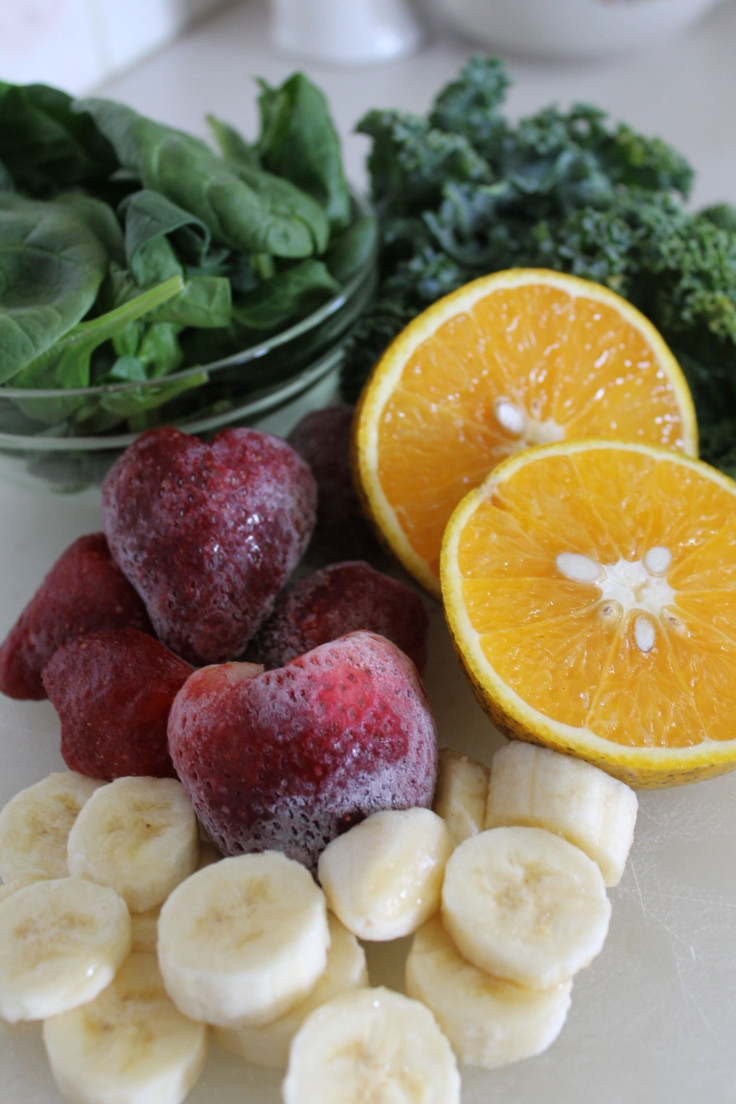Frozen Fruits And Veggies Better Than The Fresh Ones? Experts Say Yes

Frozen foods, especially fruits and vegetables, are considered unhealthy and are often described as processed junk. Whereas, consumption of food is believed to be the best way to stay fit.
A diet rich in fruits and vegetables can help a person reduce the risk of chronic illnesses such as diabetes and blood pressure. This is because they are rich in minerals, vitamins and antioxidants.
However, many of the fruits and vegetables are seasonal and people often find it difficult to get produce from the market during out-seasons. This factor has increased the popularity of frozen fruits and vegetables.
But, do frozen fruits and vegetables have the same nutritional benefits of fresh produce?
A 2015 study, titled “Vitamin retention in eight fruits and vegetables: a comparison of refrigerated and frozen storage”, revealed that frozen fruits and vegetables have the same amount of vitamins or more when compared with the fresh ones.
Study author Ali Bouzari revealed that the moment a fruit or vegetable is plucked, it gets exposed to oxygen. As a result, the nutritional value of the plucked item gradually gets degraded.
Bouzari, who is also a culinary scientist and the author of the book “Ingredient: Unveiling the Essential Elements of Food”, said freezing is the best way to preserve all the nutrients in fruits and vegetables.
“In terms of the ways humans have come up with preserving foods, freezing comes up at the top for preserving nutrients. If you can't afford fresh or live in an area where a bodega down the street is all the access to produce you can get, it's important for people to know that frozen is a viable alternative,” Bouzari told CNN.
Plant expert Gene Lester, who is the national program leader for the US Department of Agriculture, also said that frozen fruits and vegetables have more nutritional values than the fresh ones available in the grocery shops.
Lester revealed that exposing fruits and vegetables to nitrogen is the best way to preserve their nutrients, which could be degraded through the exposure to oxygen. “[Frozen fruits] are commercially picked at the peak of ripeness and then individually quick frozen and packaged under a nitrogen atmosphere,” Lester continued.
Explaining further, Lester said many of the commercially available fruits and vegetables comes from faraway places. So, they are not allowed to fully ripe for harvesting. They are often plucked before their nutritional values reach at its peak and artificially ripened later.
“If you pick vegetables at their ripeness peak, they've got their greatest abundance of nutrients, vitamins and minerals -- and that can be anywhere between 10% and 50% more than something that is commercially harvested as fresh,” the Lester continued.
“From a commercial standpoint, you definitely have a more nutrient-dense product than something that has likely been picked, refrigerated, then put on a truck for up to three days, then stored in a warehouse ... before arriving at a grocery store for a few days,” Lester added.
However, Lester said only frozen vegetables are plucked at its peak before freezing it. Commercially available fruits are exposed to 90-95 degrees Fahrenheit of hot water temperatures before freezing. As a result, the enzymes get destroyed that causes loss of flavor, discoloring and browning.
“Blanching keeps the bright green colors fairly bright green once they've been frozen and in storage -- otherwise they can take on a grayish or brownish look,” Lester said.
Mary Ann Lila, director of the Plants for Human Health Institute at North Carolina State University, also has a similar opinion. She said freezing plays a vital role in preserving the beneficial compounds in the vegetables that protects them against disease.
Another benefit of buying frozen veggies from the market is that they don’t contain any type of additives in it. It is mainly because freezing preserves food.
Mario G. Ferruzzi, a professor in the Department of Food, Bioprocessing and Nutrition Sciences at North Carolina State University, said, “When you compare fresh string beans in a store versus frozen, frozen will almost always be higher in nutrient content, because they were picked and processed at the highest point of quality and then frozen to preserve them.”
© Copyright IBTimes 2025. All rights reserved.





















